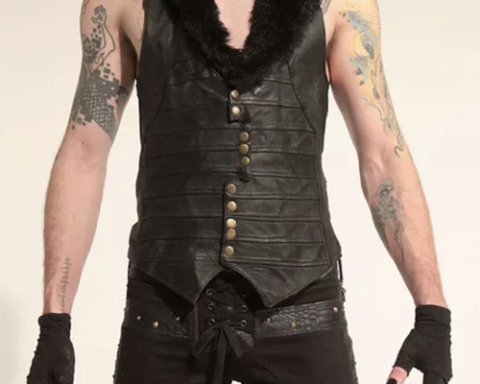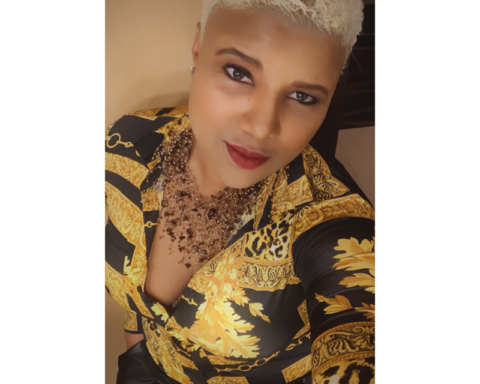Writing about LGBTQ issues can be challenging. Our acronym covers so many different identities and experiences that treating our community as a single entity doesn’t always make sense. Over-generalization can quickly lead to no longer speaking to anyone’s experience. Certain topics resonate more with a transgender lesbian audience, than say with a cisgender gay one – and that’s OK!
That being said, we can be different and still stand as one. Just like uniting our great diversity under one acronym is essential for strengthening each other, it’s also essential for us to learn how to discuss complex issues without disregarding our own diversity. There lies the true challenge of inclusivity.
At its core, inclusivity is an exercise in awareness and rethinking how we discuss the world around us. Earlier this week, feminist author Laurie Penny found herself at the heart of a “Twitter Gender Theory War” around “the biological and reproductive basis of women’s oppression” and trans inclusivity.
The spat kicked off with Penny sharing how the stigma around dysmenorrhea (a.k.a period pain) affects her work life:
Me: I’ve cleared the day and my desk, let’s GET WORK DONE woo!
My uterus: no but instead, how would you like to spend hours in a messy ball of pain sipping tea and cursing before finally wobbling up the road to the chemists to get the serious painkillers that make you useless?— Laurie Penny (@PennyRed) August 28, 2018
Dysmenorrhea is a thing that happens to at least 90% of women (and other people with wombs) in our lifetimes and around 10% of us every damn month. It is a huge horrible pain in the nethers, literally and figuratively, and the stigma prevents us asking for the help we need.
— Laurie Penny (@PennyRed) August 28, 2018
Commuting in this state is a nightmare- often I can barely walk to the damn kettle. For me this is normal, 2 days out of 28. I’ve been freelance for the past ten years, so I’ve not had to ask a boss for time off. But I’ve had to fudge explanations to editors and miss meetings.
— Laurie Penny (@PennyRed) August 28, 2018
Usually what I end up saying is ‘I’m ill.’ But I’m not ill**, I’m just having the awful hellcramps, and if it were possible to be more honest about it we could have scheduled this so nobody’s time is wasted.
— Laurie Penny (@PennyRed) August 28, 2018
Journalist and feminist campaigner against sexual violence, Julie Bindel, challenged Penny’s inclusion of “other people with wombs” calling it “nonsense”. Penny was presumably referring to trans men and non-binary individuals, some of whom have wombs. Bindel’s comment is a sad example of how many old-guard feminists are not trans-allies. Even the feminist legend Germaine Greer has expressed transphobic views, particularly with regards to MTF trans people.
Penny tackled Bindel’s comment in a three-part response:
‘But only women have wombs!’- This is actually an important issue, where the personal is theoretical, as a feminist, a trans ally and someone currently losing an annoying amount of blood, so let me explain. (1/3) https://t.co/y4Bu83qGnq
— Laurie Penny (@PennyRed) August 28, 2018
Not everyone who has a womb is a woman (and not everyone who is a woman has a womb). Some people are trans. Some people have other biological issues. That’s important to remember, and I try to acknowledge it. However! (2/3)
— Laurie Penny (@PennyRed) August 28, 2018
However, most people with wombs ARE women, and the root of so many sexist stereotypes and so much medical ignorance around menstruation -like other reproductive issues- is misogyny. If it weren’t largely women who got periods, patriarchy would treat the whole thing differently. >
— Laurie Penny (@PennyRed) August 28, 2018
It is actually entirely possible to acknowledge the biological and reproductive basis of women’s oppression AND be trans-inclusive. See! I just did it.
— Laurie Penny (@PennyRed) August 28, 2018
Being trans-inclusive doesn’t mean cisgender women have to stop talking about the biological and reproductive basis of women’s oppression. Being trans-inclusive doesn’t negate cisgender experience, but failing to be inclusive negates transgender experience. Laurie Penny shows just how easy it is for cisgender and transgender people with different experiences to still stand as one.
Bindel accused Penny of only including “and other people with wombs” to avoid getting “masses of flak” and being “accused of ‘trans-phobia’.” Ironically, the most flak Penny has received has been for adding the parenthesis, something she didn’t fail to point out:
In fact, I added that to be fair- the flak I am currently getting for adding it is way worse than I would have had if I hadn’t, which I anticipated. (Not from you, you’re being polite. Wrong but polite.)
— Laurie Penny (@PennyRed) August 28, 2018
Why do you think different minorities have so much trouble supporting each other?
Photo: Basso Cannarsa/LUZphoto/Redux









